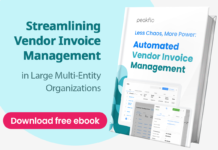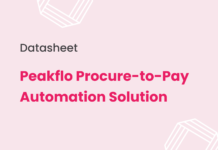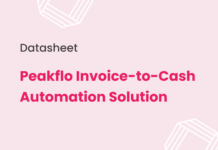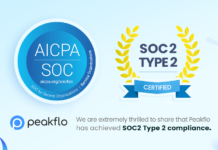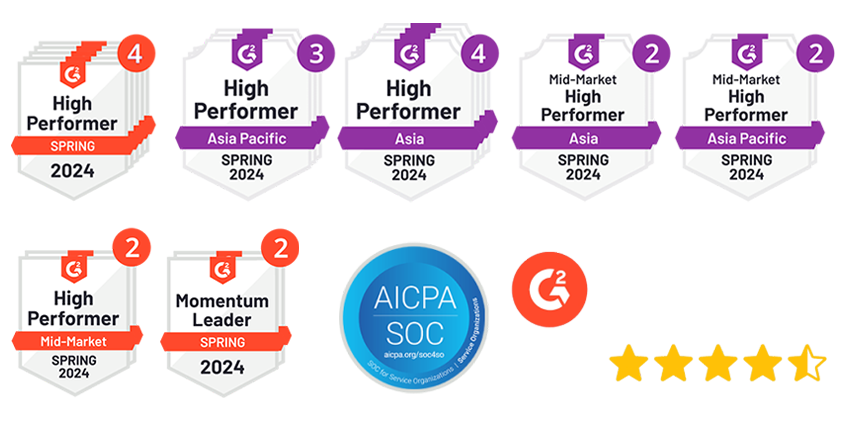Invoice processing can be a significant drain on business resources. Traditional manual methods cost companies an average of $12 per invoice, with 35% of global companies already recognizing this challenge and adopting AI invoice processing software in 2024. These costs accumulate quickly when you consider the time spent on data entry, approval routing, and error correction.
Organizations implementing AI invoice processing reduce processing time by up to 80%, allowing finance teams to focus on strategic initiatives rather than repetitive data entry tasks. Best-in-class accounts payable departments using AI automation have cut invoice processing time from 17.9 days to just 3.4 days. Companies can reduce the average cost per invoice from $12 to as little as $1.50-$2.00, representing potential savings of up to 79%.
AI invoice automation addresses more than cost reduction—it tackles the entire accounts payable workflow challenge. AI billing software adapts to your organization’s unique requirements, providing the flexibility needed for today’s complex business operations. Whether you’re looking to cut costs, improve accuracy, or streamline operations, understanding how this technology can benefit your business in 2025 is essential for maintaining a competitive advantage.
The Hidden Costs of Manual Invoice Processing
Image Source: Envoice
Manual invoice processing creates a web of hidden expenses that slowly drain business profitability. These costs extend far beyond the obvious time investment, creating financial burdens that many organizations don’t fully recognize until they examine their processes closely.
Labor-intensive data entry
Manual invoice handling demands significant human resources. Research shows that processing a single invoice manually costs between $10 to $15, with expenses escalating rapidly as invoice volumes grow. This expense stems from the labor-intensive nature of traditional methods, where employees must complete multiple steps for each document.
Invoice processing consumes approximately 20% of an employee’s work hours. At an average annual salary of $50,000, this represents roughly $10,000 per year per employee dedicated solely to invoice management. The manual approach involves data entry, verification, routing, and filing—activities that contribute little to strategic business objectives.
High error rates and rework
Manual data entry introduces errors that create costly downstream problems. Studies show that approximately 20% of manually processed invoices contain discrepancies requiring additional time and resources to resolve. Each processing mistake carries significant financial consequences, with fixing a single error costing up to $53.
Common error patterns include:
- Incorrect amounts and typos
- Duplicate payments
- Missing or incorrect supporting documents
- Mismatched purchase orders
Manual systems experience an error rate of approximately 1.6% per invoice. For every 1,000 invoices processed, your team faces roughly 16 errors, translating to $848 in correction costs alone, excluding the operational disruptions these errors cause.
Delayed payments and missed discounts
Manual processing creates bottlenecks that directly impact cash flow management. Manual workflows typically require 7-13 days to complete an invoice cycle, with some organizations experiencing delays of up to 20.8 days depending on approval complexity.
These extended timeframes result in missed early payment discounts and potential late payment penalties. One retail company processing 5,000 invoices monthly missed so many payment deadlines that they incurred late payment penalties amounting to $50,000 annually. Additionally, 61% of late payments in the U.S. stem directly from invoice errors, creating cash flow problems throughout the business ecosystem.
Vendor dissatisfaction and disputes
Manual errors strain valuable vendor relationships. More than 60% of late payments result from administrative errors and subsequent disputes. These issues create administrative burdens while eroding trust with suppliers.
When payments are consistently delayed, vendors may implement stricter terms, reduce credit allowances, or terminate partnerships altogether. One manufacturing firm’s manual processing led to compliance issues and tax calculation discrepancies that resulted in a $100,000 fine.
The impact extends beyond immediate financial penalties. Disputed invoices delay payments, disrupt cash flow, and create financial stress for both parties. Companies in the Americas lose 51.9% of unpaid receivables not paid within 90 days, making invoice dispute reduction essential for financial stability.
How AI Invoice Processing Software Solves These Problems
Image Source: Magic FinServ
Modern AI invoice processing technology addresses the costly challenges outlined above through intelligent automation. These systems provide end-to-end solutions that transform accounts payable from a burden into a strategic advantage.
Automated data extraction and validation
AI-powered invoice processing changes how businesses handle data capture through advanced optical character recognition (OCR) and machine learning algorithms. These systems automatically extract critical information—vendor details, invoice numbers, dates, line items, and totals—without manual intervention.
The technology performs immediate validation by cross-referencing extracted data against predefined rules and purchase orders, catching discrepancies before they create problems. Self-learning algorithms continuously improve, enhancing extraction accuracy to 98% precision. Tasks that previously required up to 3 minutes per invoice now complete in under 30 seconds.
Smart approval workflows
AI creates intelligent pathways for invoices to follow through your organization. Modern systems dynamically route invoices to appropriate approvers based on vendor, amount, department, or other parameters. These workflows eliminate bottlenecks by automatically redirecting approvals when primary approvers are unavailable.
AI invoice processing sends automated notifications and reminders to keep approvers on track. For routine transactions, advanced systems enable “Autopilot” for automatic approvals of invoices meeting predefined criteria, freeing your team for higher-value work. This intelligent handling accelerates approval velocity without compromising financial controls.
Real-time invoice tracking and alerts
AI processing provides complete visibility throughout the invoice lifecycle. You can track exactly when an invoice is received, when it was sent for approval, and when it’s due to be paid.
Real-time dashboards display current status, enabling better cash flow management and simplified reporting. These systems automatically send alerts for pending approvals and approaching due dates, helping you capture early payment discounts and avoid late fees.
Built-in fraud detection and compliance checks
AI invoice processing includes sophisticated fraud prevention capabilities. Advanced algorithms analyze invoice patterns to identify anomalies and potential fraud attempts in real-time. These systems can detect:
- Duplicate invoices at the line-item level
- Suspicious pricing or quantity variances
- Potentially fake vendors
- Unusual invoice behavior or submission patterns
AI systems flag potential issues the moment an invoice is submitted. This proactive approach enforces compliance with company policies and regulatory standards while maintaining detailed audit trails.
Peakflo stands out as the best choice for businesses looking to scale. Its AI-powered invoice capture, three-way matching, and multi-language support make it perfect for global teams. Plus, it saves up to 140 hours per month, giving your team the time to focus on strategic tasks.
Companies implementing AI invoice processing software can reduce invoice processing times from weeks to days—or even hours. This technology turns raw invoice data into valuable financial insights, enabling smarter business decisions and stronger vendor relationships.
Top 5 Ways AI Invoice Processing Saves You Money
Image Source: Professional Advantage
The financial impact of AI invoice processing extends far beyond operational improvements. Here are the five most significant ways this technology directly impacts your bottom line:
1. Reducing manual data entry costs
AI invoice processing slashes processing costs by up to 79% per invoice. For organizations processing thousands of invoices monthly, this represents substantial savings. The direct processing cost drops dramatically from $15-40 per invoice with manual methods to merely $3-8 with AI automation.
Best-in-class accounts payable departments using automated AI invoice processing reduce their average cost per invoice to $5.00 or less, compared to the industry average of $12.00. These savings come primarily from eliminating time-consuming data entry tasks that previously consumed 5-15 minutes per invoice.
2. Preventing duplicate or fraudulent payments
Each duplicate payment costs an average of $2,034, creating a significant financial drain. AI systems excel at preventing these costly mistakes through sophisticated detection algorithms that analyze historical transaction patterns and flag anomalies before payment processing.
One healthcare provider implemented AI-driven fraud detection that identified potential duplicate payments, helping them avoid over $2 million in unnecessary expenditures annually. AI systematically reviews all invoice data daily, identifying duplicate risks that manual processes typically miss.
3. Accelerating invoice approval cycles
Faster processing delivers financial benefits beyond efficiency gains. Automated AI invoice processing reduces invoice processing time from 17.9 days to just 3.4 days. This acceleration means your team can process invoices 10-20 times faster than manual methods.
AI systems automatically route invoices to appropriate approvers and eliminate bottlenecks, transforming approval workflows that previously took 2-5 days into processes that complete in hours.
4. Enabling early payment discounts
The opportunity to capture early payment discounts represents a significant financial advantage. Organizations implementing effective early payment discount programs achieve annualized returns of 36-37% on their available capital, far exceeding most investment opportunities.
AI systems automatically detect discount opportunities and display discount periods and potential savings to users, allowing finance teams to prioritize invoices eligible for discounts. The system even tracks savings through status bars on payment dashboards.
5. Lowering compliance and audit risks
Financial penalties from compliance issues can be substantial. AI enforces billing policies through automated rules, ensuring consistent compliance and preventing overbilling. The technology flags missing data, duplicate invoices, and mismatched figures before they become compliance risks.
AI-driven audit preparation organizes compliance records, enabling teams to find exactly what auditors need in seconds, eliminating the 40-80 quarterly hours typically spent on manual document organization and reducing the risk of costly penalties.
Choosing the Right AI Billing Software for Your Business
Selecting the ideal AI invoice processing software requires careful evaluation against your specific business needs. Understanding what functionality will truly deliver value to your accounts payable operations is the first step toward making an informed decision.
Key features to look for
Essential capabilities in top-tier AI billing software include intelligent document processing with OCR technology for data extraction, achieving up to 97% accuracy. Systems offering three-way matching validate invoice data against purchase orders and receipts, ensuring accuracy before payments are processed. Duplicate invoice detection represents a critical capability, as each duplicate payment costs businesses thousands in unnecessary expenditures. Advanced solutions also incorporate natural language processing to accurately interpret captured text.
Integration with accounting tools
Effective AI invoice processing must connect seamlessly with your existing financial ecosystem. Solutions offering two-way synchronization with popular platforms like QuickBooks, Xero, or SAP ensure invoice data flows directly into your accounting systems without manual reconciliation. Evaluate whether the software provides APIs or middleware for connecting different systems based on your current infrastructure.
Scalability and vendor support
Your chosen solution should grow with your business operations. Quality AI invoice systems handle increasing invoice volumes without performance degradation. Continuous vendor support remains essential—look for providers offering implementation assistance, regular updates, and technical troubleshooting.
Security and compliance considerations
AI invoice processing involves sensitive financial data, making robust security measures essential. Evaluate encryption protocols during data transfer and storage. The system should maintain audit-ready documentation and compliance with relevant regulations like GDPR. For multinational operations, select software that automatically adjusts to different regulatory environments, reducing compliance burdens on local teams.
The Future of AI in Invoice Processing and Billing
Image Source: LeewayHertz
The evolution of AI invoice processing technology continues to advance beyond current capabilities. Emerging innovations promise even greater efficiency and security for businesses ready to adopt next-generation financial solutions.
Predictive analytics for spend forecasting
AI-powered analytics transforms historical payment data into actionable financial forecasts. These systems analyze past invoice patterns to predict future cash flows with remarkable accuracy. Predictive algorithms identify optimal payment timing, enabling finance teams to anticipate late payments and strategically schedule invoices for improved budgeting precision.
This capability moves finance teams from reactive to proactive management, allowing better cash flow planning and resource allocation decisions.
Blockchain for secure invoice records
Blockchain technology creates tamper-proof invoice records through distributed ledger capabilities. Companies can establish immutable transaction histories that drastically reduce fraud. Home Depot implemented such a solution and experienced a 65% reduction in disputes, with resolution times shrinking from months to mere days.
The technology provides an additional layer of security that manual processes simply cannot match, creating audit-ready documentation automatically.
AI chatbots for vendor communication
Finance professionals currently spend approximately 6 hours weekly responding to supplier inquiries, handling roughly 28 vendor emails daily. Advanced AI chatbots now automate these communications, managing routine supplier inquiries while maintaining relationship quality. This technology streamlines the entire procurement cycle, freeing valuable team resources for strategic work.
These automated systems handle common questions about payment status, invoice details, and processing timelines without human intervention.
Continuous learning for smarter automation
Modern AI invoice systems continuously improve through machine learning algorithms. These systems analyze each processed document to enhance accuracy over time. An estimated 80% of companies will implement some form of AI-powered automation in their financial processes by 2025, making continuous learning capabilities essential for maintaining a competitive advantage.
The self-improving nature of these systems means accuracy and efficiency increase with every invoice processed, creating compounding benefits over time.
Peakflo AI Invoice Processing Software
Peakflo’s AI Invoice Processing Software is built to take the manual grind out of accounts payable. With advanced AI and OCR capabilities, the software automatically captures, reads, and validates invoice data—no more data entry, chasing approvals, or sorting through emails. It matches invoices with POs and GRNs, flags mismatches, applies tolerance thresholds, and routes them through customizable approval workflows.
Whether you’re processing hundreds or thousands of invoices across multiple entities, Peakflo ensures speed, accuracy, and compliance. It supports multi-language, multi-currency invoices and integrates seamlessly with your ERP, helping your finance team close books faster, reduce errors, and save hours every week.
The best part? Finance teams can finally shift focus from tedious admin work to high-value tasks like cash flow analysis, budgeting, and strategic planning.
A Way Forward
AI invoice processing software addresses a fundamental business challenge that affects every organization handling supplier payments. Manual processing creates substantial hidden costs through labor-intensive data entry, high error rates, delayed payments, and strained vendor relationships.
The question has shifted from whether you can afford to implement AI invoice processing to whether you can afford not to. Companies that embrace this technology gain a significant competitive advantage through reduced costs, enhanced accuracy, and streamlined operations. AI invoice processing software can turn accounts payable from a cost center into a strategic asset, offering one of your biggest potential money-saving opportunities in 2025 and beyond.
Try out AI invoice processing solutions today to see how automation can eliminate the manual bottlenecks that drain your resources and discover the substantial savings waiting in your accounts payable process.
FAQs
Q1. How much can AI invoice processing software reduce costs?
AI invoice processing can reduce costs by up to 79% per invoice, lowering the average cost from $12 to as little as $1.50-$2.00 per invoice.
Q2. What are the main benefits of using AI for invoice processing?
Key benefits include automated data extraction, reduced errors, faster approval cycles, prevention of duplicate payments, and improved vendor relationships through timely payments.
Q3. How does AI invoice processing improve accuracy?
AI systems use advanced OCR and machine learning to extract data with up to 98% accuracy, automatically validate information, and flag discrepancies before they become issues.
Q4. Can AI invoice processing help with compliance and fraud prevention?
Yes, AI systems include built-in fraud detection capabilities, flag potential compliance issues in real-time, and maintain detailed audit trails to ensure regulatory compliance.
Q5. What should businesses look for when choosing AI invoice processing software?
Key features to consider include intelligent data extraction, seamless integration with existing accounting tools, scalability, robust vendor support, effective security measures, and compliance with relevant regulations.










![Why AI Sales Calls Are Making Good Sales Reps Even Better [2025 Guide] ai sales calls](https://blog.peakflo.co/wp-content/uploads/2025/09/65168cf6-3001-4733-8cbc-12d5684cf449-218x150.webp)







